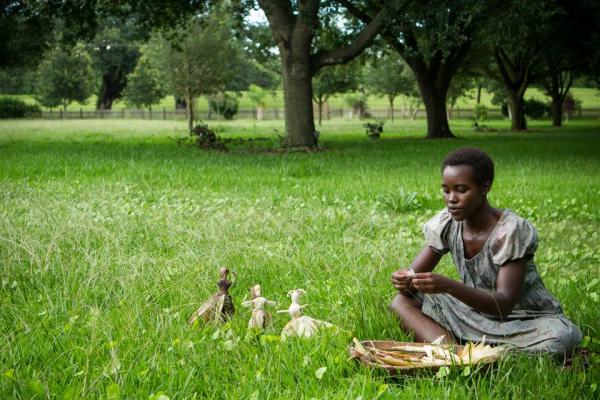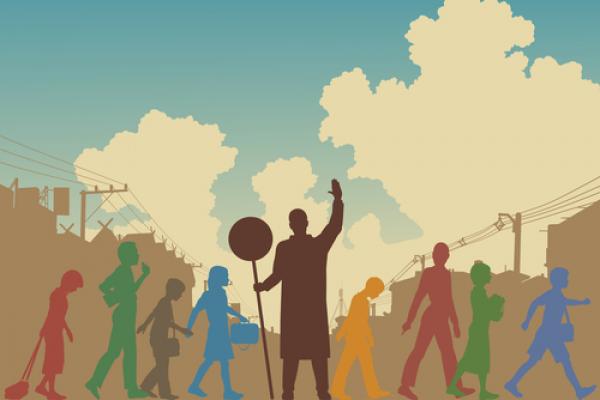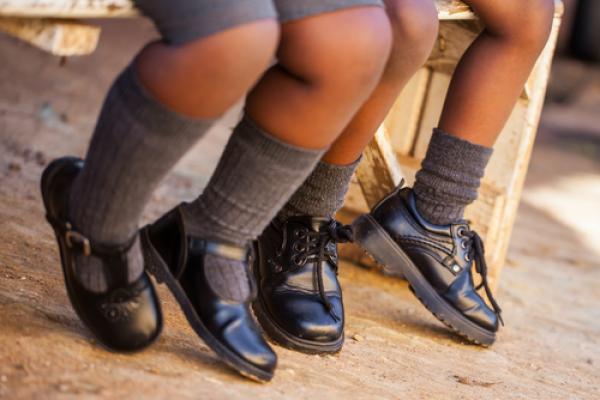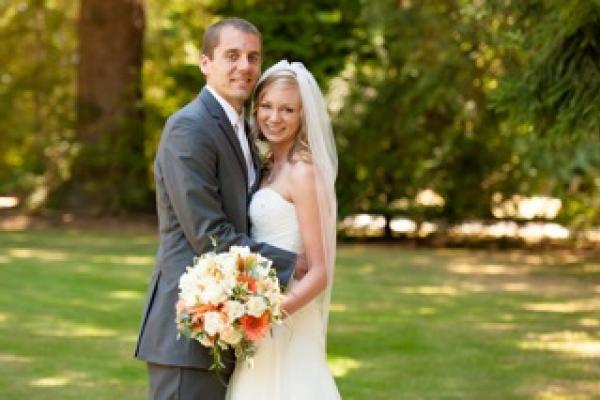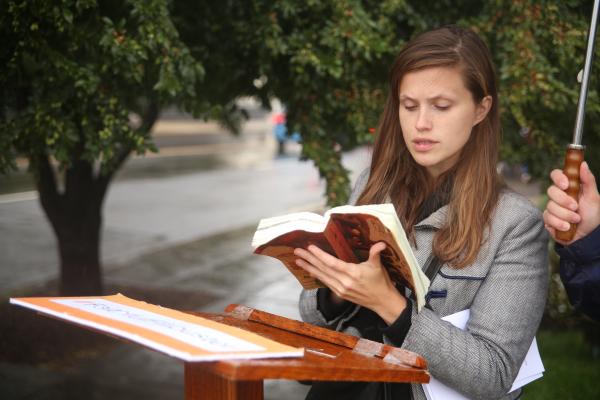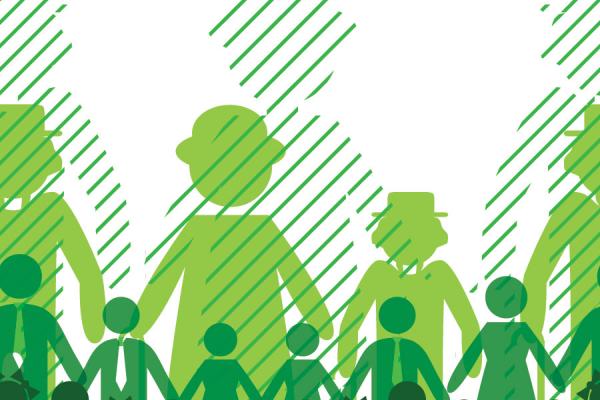Since the production of The Birth of a Nation, Hollywood has lived with the mythic world imagined by artists who view the lives of people of color as footnotes and props. From Gone With The Wind to Django Unchained, the most difficult type of film for Hollywood to get right is the antebellum story of people of color.
Django, for example used the archetypes designed by Hollywood — “Mammy, Coon, Tom, Buck, and Mulatto,” to quote film historian, Donald Bogle — and exploit them in order to create a hyper-exploitation Western fantasy, with slavery as the backdrop. The film is a remix and critique of exploitation clichés, not a historical drama seeking to illuminate our consciousness. Django is a form of visual entertainment where enlightenment might happen through a close reading of the film. All the archetypes remain in place. Nothing is exploded or re-imagined, only remixed to serve the present age.
Steve McQueen’s 12 Years A Slave, on the other hand, sits within and outside the Hollywood fantasy of antebellum life. I say it sits within, because the archetypes forged by the celluloid bigotry of D.W. Griffith are present. But, in the hands of the gifted auteur, Steve McQueen, they are obliterated and re-imagined as complex people caught in a system of evil constructed by the immorality of markets, betrothed to mythical, biological, white supremacy.
In my lifetime I’ve driven on three roadways named after Martin Luther King, Jr. One was a street, another a boulevard, and the third a highway. And whether by cosmic irony or human design, each of these roadways passes through communities of significant poverty and color, namely black. Around these roadways are boarded up storefronts, crack and heroin dens (think The Wire), condemned row houses, and inevitably, always – public schools.
From 2001 to 2006 I left the safety of the pulpit to teach in the schools of Baltimore and Washington, D.C., pursuing a call to care for the proverbial least of these (it’s always pained me to think how I might feel to be called this, as in hey, you least of these, can I help you with anything? – but that’s a reflection for another time). I left also the safety of a suburban megachurch, where all you needed to do to understand the socioeconomic standing of its members was to walk through the parking lot, and the familiar cultural context of my Korean-American upbringing.
This article, however, is not about me. It’s about beautiful, creative, energetic, and intelligent children — kids who, as the least of these, are too often treated as such. There is no limit to blame: from the mother who comes to school drunk, a prostitute, publically shaming her son (who loves her nonetheless and gets beaten by the other boys defending her honor); to the worn-out teacher who drags a “difficult” child into the bathroom, bruising her arms and threatening her with verbal vitriol and rage; to the administration that promotes student after student, knowing they are years behind, but too old to remain; to the system that maintains, protects, and worships a biblical truism, that for to all those who have, more will be given, and they will have an abundance; but from those who have nothing, even what they have will be taken away (Mt.25:29).
I remember the first time I ever got straight A’s. It was also the last time.
I was in Mrs. Becker’s 4th grade class at John Story Jenks School in Philadelphia. I was always good at reading, I LOVED science projects, and art class was fun — but math? Ugh. Math was my nemesis. In 4thgrade the times tables felt as insurmountable as that dang rope everybody else could whiz up and down in gym class. I just couldn’t figure it out. In fact, to this day, I haven’t figured the rope.
So, my father became my times tables drill sergeant and resorted to straight memorization tactics, making me write each one 10 times. Then he sat across from me at the dining room table and drilled me on the times tables until I said them in my sleep. It was brutal … and oddly, one of the fondest memories of my elementary school years. Not only did I master multiplication, but I also learned something much more important. When my report card came back that quarter with straight A’s, I learned that I could learn!
Asian-American Christians are voicing concerns over how they’re depicted by white evangelicals, most recently at a conference hosted by Rick Warren’s Saddleback Church in California.
Saddleback recently hosted a conference by Exponential, a church-planting group, and a video last Tuesday left some Asian-Americans offended.
It’s the second dust-up in as many months involving Asian-Americans and Warren, who spoke at the Exponential conference. Last month he received backlash from Asian-American Christians after he posted a Facebook photo depicting the Red Guard during China’s Cultural Revolution. “The typical attitude of Saddleback Staff as they start work each day,” the caption read on Sept. 23.
When Dordt College graduates Jordan Harmelink and Rachel Tennant said “I do” at their July wedding, they joined the masses of graduates who meet their spouse at private Christian colleges.
According to an analysis by Facebook, of the top 25 colleges where men are most likely to meet their spouse, all are private Christian institutions. For women, more than half (64 percent) of the top 25 colleges where they’re likely to find a husband are religious schools.
The 12 schools that appear on both lists: They’re all Christian colleges.
Setting an away email with no date of return was almost as odd as leaving work and not and knowing when I’d be back. This unexpected time off gave me the opportunity to do everything on my to-do list and spend ridiculous amounts of time at the dog park. Naturally, it also gave me time to catch up on reading and visiting with other furloughed friends. But this past Wednesday I was beginning to feel a bit hopeless about the whole situation.
Scrolling through Facebook I noticed Sojourners updates on its #FaithfulFilibuster and it truly made me ashamed of my hopelessness. I was ashamed because I forgot who was in charge. I was ashamed because I forgot where my hope lies. And I was ashamed because I was so wrapped up in my own struggles of furlough I forgot about the families that were already struggling and now also dealing with a loss of paychecks.
On Thursday I saw another update from Sojourners, and despite the rain, I felt compelled to go check it out. I expected to do nothing but observe and admire faith leaders stepping out to reclaim hope and speak for the millions of silenced voices in this country. However, when I arrived, something different happened. I was asked if I wanted to participate, handed a Bible, and stepped to the podium to read.
Creator of the Universe preserve us from our own presumption. Do not let us close ourselves into ourselves, but open us continually into you. Let us be more in love with You than with our notions of You. Let us stop claiming to know everything so that we may understand something. Amen.
-Rabia Terri Harris
I love October. As a teacher, it was that time of year where rhythms were becoming established and the seeds of learning were beginning to sprout. In ministry, it is the time where I find myself riding the waves of my student’s school schedules in an effort to connect and converse. In either case, education, shapes not on the schedule of my life but the purpose.
As I breathe in the crisp autumn breeze, it reminds me to consider the larger partnership between the educators and the church. When we, as ministers and church leaders, consider what role education plays in the life of the church, we have to consider the active part of the church in the education of not only the church community, but its larger context.
Education, in the public context, is a constant topic of political struggle and strife. Education, in the ecclesial context, in its best is in-depth Bible study and at its worst is education by osmosis and observation. What is the call or consideration of the church to the topic of education? What role does the church have in the education of the community?
